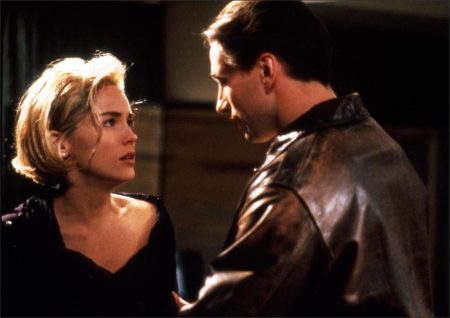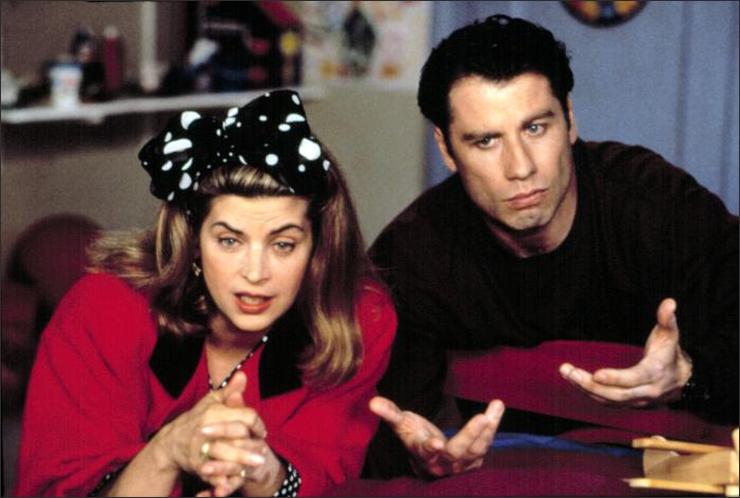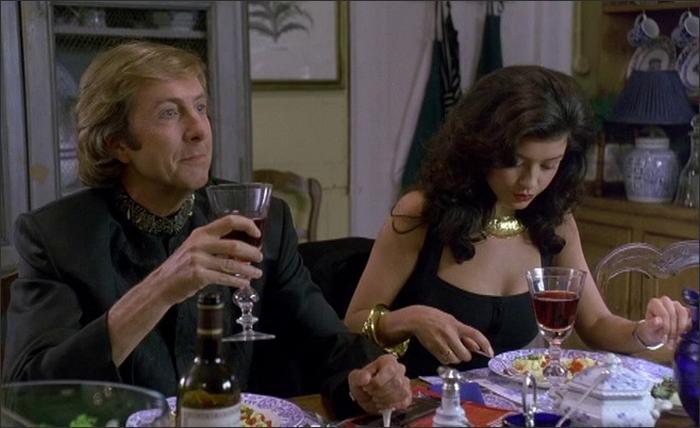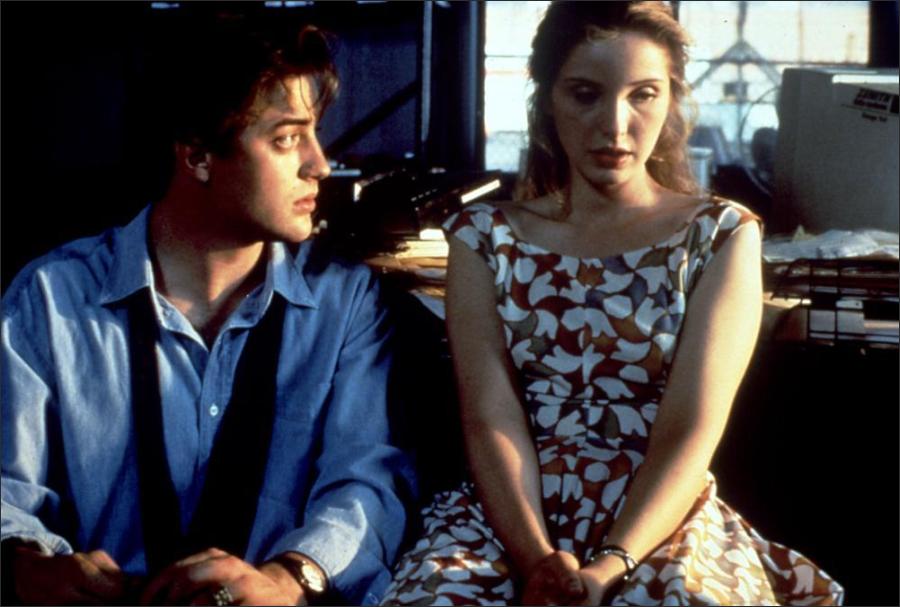Sliver Movie Trailer. Sharon Stone is seen practicing her golf putts in “Sliver,” which is one of many good reasons this film was kept under wraps until it opened yesterday. Faced with the challenge of following up Ms. Stone’s sensational appearance in “Basic Instinct,” the makers of “Sliver” have wound up violating what should have been sacrosanct rules. Among them: Sharon Stone should not appear in roles that require her to do laundry. Or go to the supermarket. Or talk about Pavarotti. Or trade pleasantries with her neighbors. Or toss little cocktail parties. Or generally be nice.
But in “Sliver,” playing a book editor named Carly Norris, Ms. Stone comes across as the kind of person who wears underwear, even if Joe Eszterhas’s exceptionally crass screenplay does include a scene in which she takes it off in a restaurant. (If Ms. Stone isn’t careful, this could become a trademark gesture, the kind of thing that winds up in a Las Vegas act 30 years down the line.) It is as if Mr. Eszterhas, who also wrote “Basic Instinct,” has lost track of why this actress could so stunningly embody sexual power and menace in his earlier tale.
This time around, playing a scared, passive figure at the center of a senseless story, Ms. Stone has little of interest to do. The performance is so wan, as is all the acting in “Sliver,” that it calls attention to the kind of artifice that was everywhere in a well-crafted pulp classic like “Basic Instinct.”
In fact, each of the principals in “Sliver” has been shown off to such better advantage in other films (particularly William Baldwin, who is as tepid here as he is magnetic in the current “Three of Hearts”) that the problem clearly does not lie with the actors. Nobody could shine in the listless atmosphere created by Phillip Noyce’s perfunctory direction. And nobody could do much with a line like “Zeke, I want to have a real relationship.” Or “Listen, do you work out?”
Throwing out most of Ira Levin’s novel, from which “Sliver” takes not much more than its title and a central situation, the film places Carly in a high-rise Manhattan apartment house that has a bad reputation. The tenants’ mortality rate is exceptionally high, although this is not the sort of coherent mystery that makes such fatal mishaps add up in the end.
Another feature of the building is that it is completely monitored by hidden video cameras, so that someone in a sleek control room can spy on all his neighbors. The film manages to find remarkably cute, phony or uninteresting things going on in each apartment. One couple is actually seen doing the tango.
A handsome and ubiquitous young bachelor in the building is Zeke Hawkins (Mr. Baldwin). Trying to create suspense where not much exists, the film makes a major character out of Jack Landsford (Tom Berenger), a hearty he-man of a novelist who specializes in police procedurals and at one point refers to detective work as his “craft.” There is remarkably little reason to have included Jack in this story, except as an excuse for this screenplay to keep its options open the way “Basic Instinct” did. This film’s ending is even less believable than that one’s was, although audiences are much less likely to care.
The film, of course, leads Ms. Stone into as many sexual situations as possible, most of them involving Mr. Baldwin and one finding her alone, emoting furiously in her bathtub. None of this generates much heat, since the characters are so paper-thin that there’s no real drama to anything they do. Along with its stilted sex scenes, the film also incorporates a lot of implausible, wearyingly vulgar dialogue, especially from Carly’s female friends. Lines like “You’ve been spending too much time with your vibrator” — from a colleague at the office? — help set the generally crude tone.
“Sliver” is heavily invested in the notion that its voyeurism will stir the audience. But in fact this aspect of the plot mostly manages to turn the principals into high-tech couch potatoes. Arriving at last in the video control room, Ms. Stone stares at the many monitors with that mixture of awe, astonishment and wisdom generally associated with talk-show hosts.
She spends some time looking at the video images but otherwise doesn’t change at all. And the impresario who has set up this video operation must explain himself in amazingly trite terms. “It’s real life,” he explains. “It’s a tragedy. It’s funny; it’s sad; it’s unpredictable.” Not really; it’s just a room full of television screens.
“Sliver” is not helped by a thoroughly unconvincing New York atmosphere (in which the residents of the high-rise behave like members of one big happy family) and by a noticeable absence of glamour. Ms. Stone is costumed and photographed much less cleverly than she was last time, to the point where her very real magic only occasionally shines through.
Shown off to poor advantage in a small role is Polly Walker, who played the beautiful, self-assured socialite in “Enchanted April” and appeared as a terrorist in Mr. Noyce’s earlier and better “Patriot Games.” This time, she turns up as Ms. Stone’s annoying neighbor, spouting obscenities and snorting cocaine. Sliver.
Sliver (1993)
Directed by: Phillip Noyce
Starring: Sharon Stone, William Baldwin, Tom Berenger, Polly Walker, Colleen Camp, Amanda Foreman, Martin Landau, Nina Foch, Anne Betancourt, Nicholas Pryor
Screenplay by: Joe Eszterhas
Production Design by: Paul Sylbert
Cinematography by: Vilmos Zsigmond
Film Editing by: Richard Francis-Bruce, William Hoy, Bert Lovitt
Costume Design by: Deborah Lynn Scott
Set Decoration by: Lisa Fischer
Art Direction by: Peter Landsdown Smith
Music by: Howard Shore
MPAA Rating: R for strong sexuality, and for language and violence.
Distributed by: Paramount Pictures
Release Date: May 21, 1993
Views: 1074






